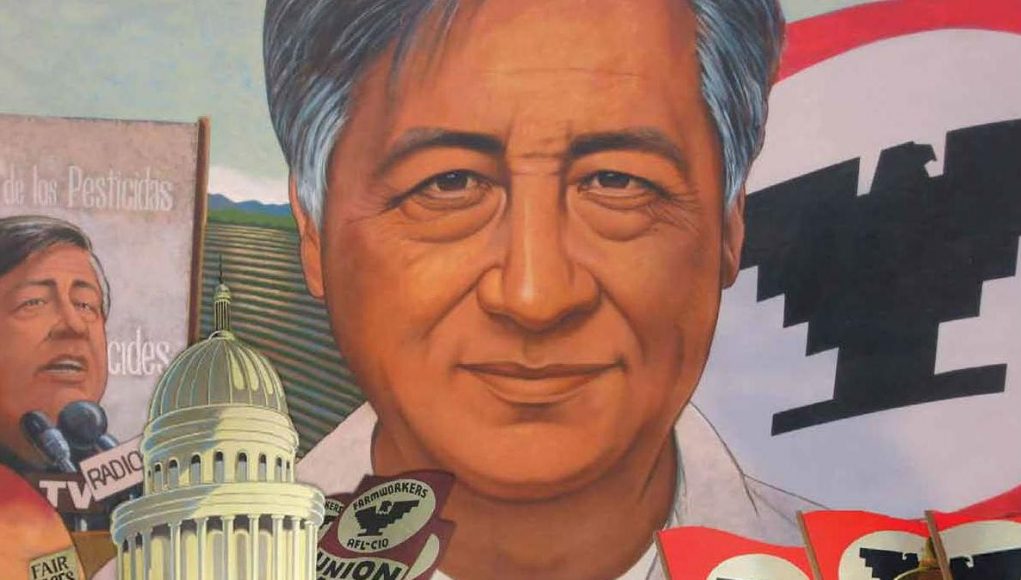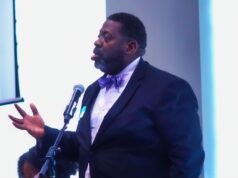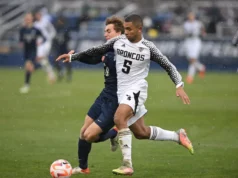In these times of peril and of uncertainty in the world that we live in, I recently sat at a bar and revisited the American dream. I was sitting there waiting to get on my flight back to the Midwest, but while this bar might seem like any other bar, it is not for me. My dad worked here for close to a decade. Back then it was called Antone’s and back then you would find me in the kitchen working alongside my father.
My dad showed me and taught me what hard work is and told me to study hard so I could be in the position I am today. Now, I’m the first in my family to graduate from college and earn a master’s degree in Latin American Studies with the opportunity to attend an Ivy League institution next fall. I’m fully bilingual, a teacher (a profession that makes my soul smile), well-traveled and in love with culture. A position of privilege, absolutely, but back in the early ’90s when my parents migrated to the United States it was not even present in their wildest dreams.
It is fundamental for us to step back and think about what we are fighting for and how Hillary Clinton’s election loss and the precarious moves of our president-elect, Donald Trump, make it feel like our American dream, at least for minorities, is in serious danger. A Twitter-junky is about to sit on the Iron Throne (excuse my Game of Throne reference) and if his response to the kind message by the “Hamilton” cast is a sign of things to come, then America is in for some very trying times.
As a Latinamericanist, the idealism of the American dream has been hard to concede as I am aware, far more than most, about the tangled and faltered destinies that the U.S. and Latin America share. However, as a Latinx, it is within me to look at a Utopian past and find greatness and often give in and start to believe that we can strive to possess a little bit of that greatness from the Incas, Aztecs, and Mayas. For the U.S., however, that greatness seems to lay in economic wealth and prosperity, not a glorious indigenous civilization. What is fundamental about the American dream is the following: We believe that an immigrant can come from nothing and make her/himself into something. What we seem to forget, in the process of letting ourselves fall into a vast ocean of idealistic dreams, is that our immigrant community is one of the most vulnerable groups in our society. They are hanging on for dear life right now. The struggle has always been there and that is what makes for a great story, but within our whirlwind of a political environment we must find it in ourselves to protect the road that so many people like Cesar Chavez and Dolores Huerta paved for us so we can be where we are. We must not give an inch to those who threaten the ideals of the American dream.
America needs to learn from the social movements in Latin America that when faced with adversity, we fight no matter how pungent the fight seems. During the dictatorship in Uruguay of the ’70s, people were imprisoned, tortured, and killed defending their rights as human beings and their rights to express their artistic identity. The intellectuals of the time joined the fight and are the reason why we have literary works like that of Mario Benedetti “Pedro and the Captain,” which in a nutshell, gives us an insight into the psychological warfare that those imprisoned by the regime lived. Another example of resilience is that of the literary movement of memoirs that gave us a peek into the lives of those affected by violence throughout the continent. Here we can look at the example from women guerillas in El Salvador or activists like Rigoberta Manchu in Guatemala who allowed us to step into their shoes and walk as they did through the horror of seeing their loved ones burned at the stake or dismembered. Why are these important and what do they have to do with the American dream?
Plainly, they are forms of resistance against tyranny and a relentless stream of hate. Voice to the voiceless, eyeballs to the blind, and touch to the otherwise numb. If we think of the country as a being, then artistic movements are also the air, arteries, and blood that flow through it. While these are key for our nation, so are our civil rights movements that protect us, or counter the conventional rhetoric as “Las Madres de la Plaza de Mayo” did in Argentina during the Dirty War. The military dictatorship consistently denied that it had political prisoners or that it held captive those that Las Madres demanded to see and wanted to have back in their lives. Without their arduous effort and painful struggle, justice would have turned a blind eye and death would have taken them and sucked them into obscurity.
As the beginning of what sounds like the end grows near – inauguration – we need to keep in mind where we come from and where we want to be. Can an immigrant family like mine raise a child and have her/him prosper? What are we doing to protect the American dream?










